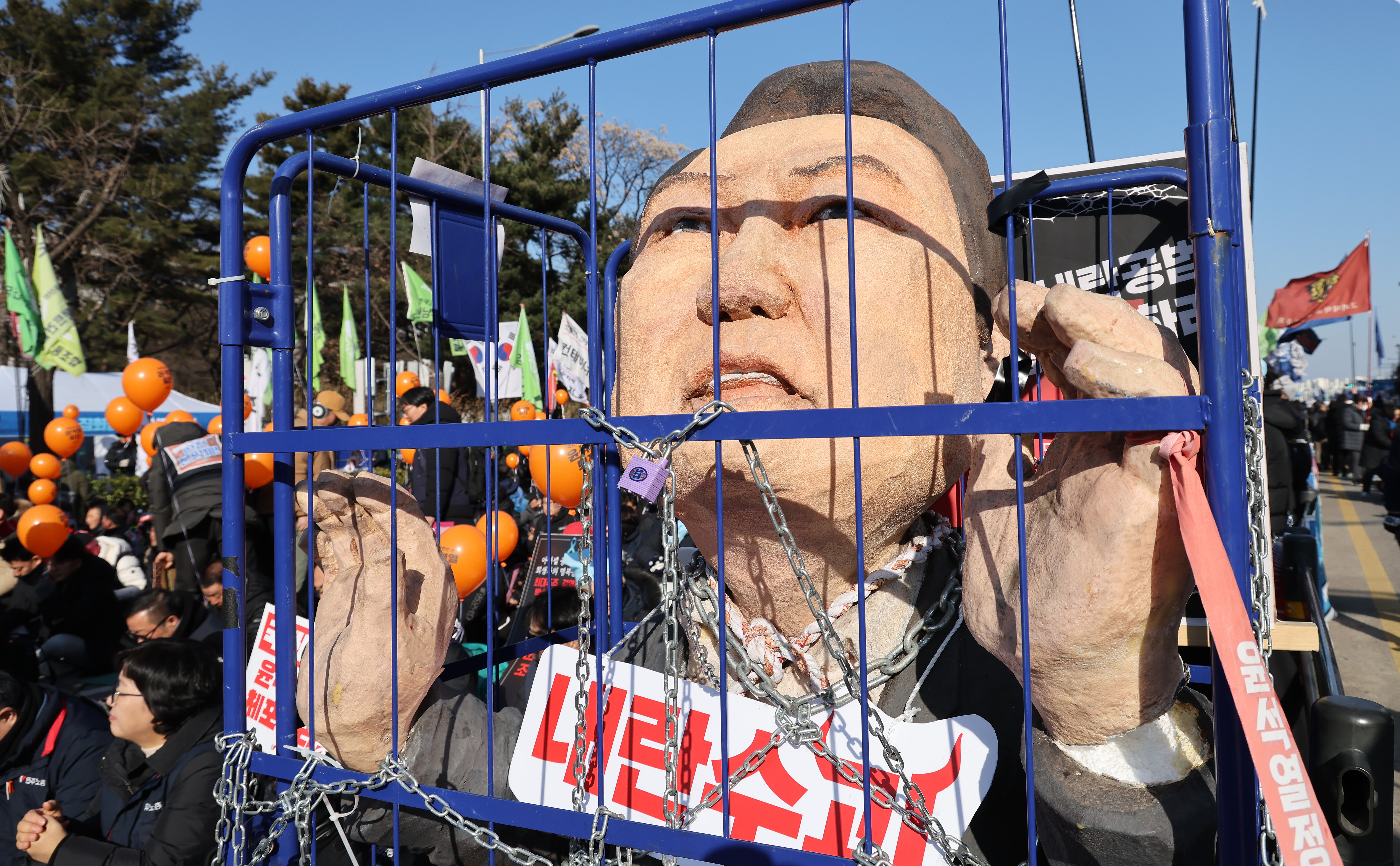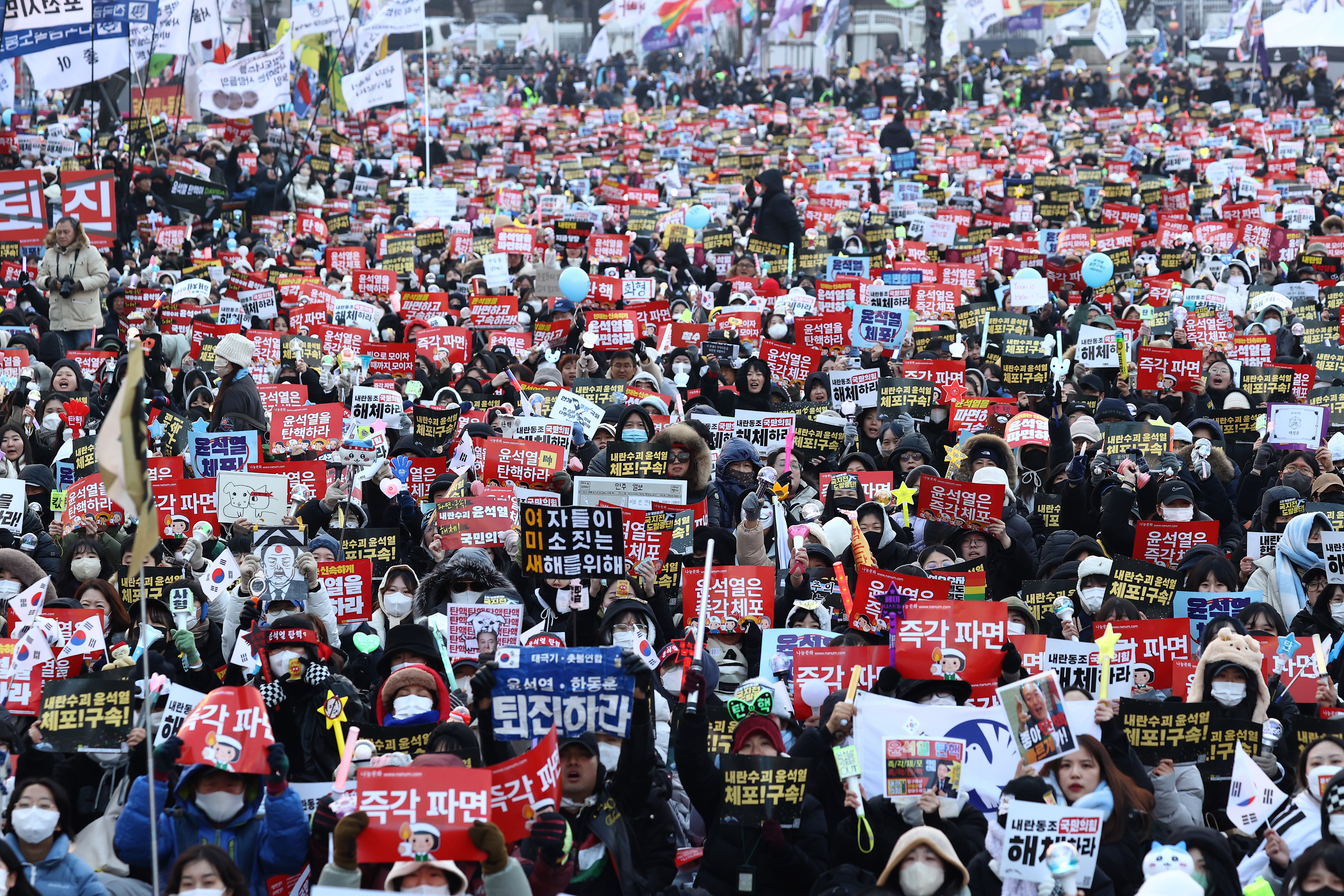Yoon Suk Yeol declines second summons as authorities investigate abuse of power and rebellion charges
Despite repeated refusals, investigators continue to seek Yoon Suk Yeol’s cooperation
Your support helps us to tell the story
From reproductive rights to climate change to Big Tech, The Independent is on the ground when the story is developing. Whether it's investigating the financials of Elon Musk's pro-Trump PAC or producing our latest documentary, 'The A Word', which shines a light on the American women fighting for reproductive rights, we know how important it is to parse out the facts from the messaging.
At such a critical moment in US history, we need reporters on the ground. Your donation allows us to keep sending journalists to speak to both sides of the story.
The Independent is trusted by Americans across the entire political spectrum. And unlike many other quality news outlets, we choose not to lock Americans out of our reporting and analysis with paywalls. We believe quality journalism should be available to everyone, paid for by those who can afford it.
Your support makes all the difference.South Korea’s suspended president Yoon Suk Yeol did not respond to a second summons from the government’s anti-corruption authorities, who are investigating his short-lived martial law decree imposed earlier this month.
The Corruption Investigation Office for High-ranking Officials had summoned Mr Yoon for questioning on Christmas Day, but he failed to appear, marking the second time he has ignored their summons after doing so last week.
Mr Yoon did not appear for questioning as of 10am local time and the South Korean agency said it would continue to wait for the suspended president on Wednesday.
On 3 December, South Korea was thrown into political turmoil when then-president Yoon Suk Yeol declared martial law, prompting troops to surround the parliament. He was subsequently impeached by the parliament as authorities began investigating allegations of rebellion related to the martial law decree.
Investigators are continuing to seek Mr Yoon’s cooperation, summoning him on Christmas Day despite his repeated refusals.
The agency would reportedly need to review the case of Mr Yoon imposing martial law in the country further before seeking an arrest warrant against him.

He also ignored a summons on 15 December from prosecutors investigating the martial law declaration.
As of now, the police, prosecutors, and the corruption investigation office have all launched probes into Mr Yoon and other officials over potential abuse of power, charges of insurrection, and crimes related to the recent declaration of martial law.
Mr Yoon’s repeated actions to avoid questioning by authorities have led to the opposition calling for his arrest, and criticism citing a potential destruction of evidence.
It is also counter to the suspended president’s own words earlier this month that he would not evade legal and political responsibility for his actions just days after the martial law declaration.

Police have so far arrested Mr Yoon’s defence minister, police chief, and several military commanders.
It is unclear what investigators can do if he continues to reject their demands to question him.
However, insurrection is one of the few charges for which a South Korean president does not have immunity.
Mr Yoon is willing to present his views during legal proceedings related to the martial law declaration, Reuters reported, citing a lawyer advising the suspended president.

Join our commenting forum
Join thought-provoking conversations, follow other Independent readers and see their replies
Comments